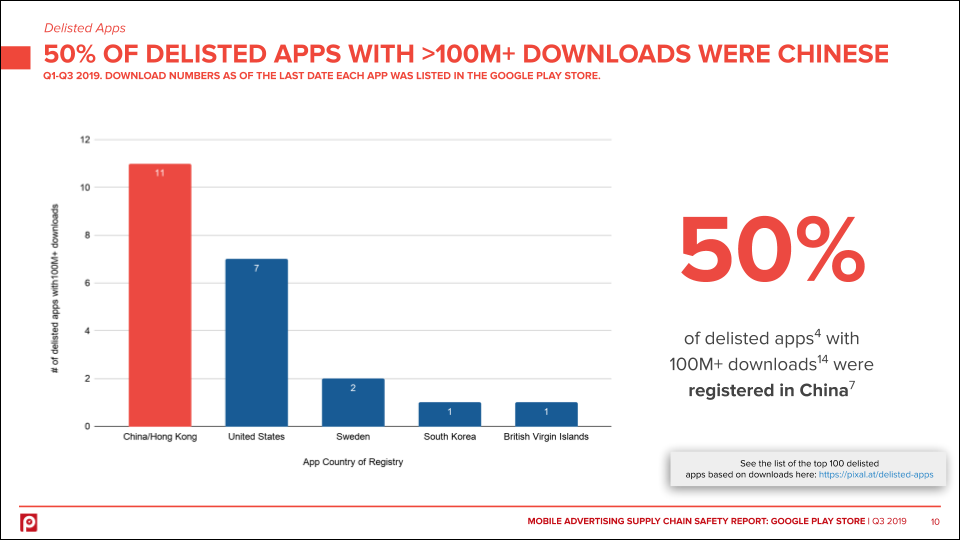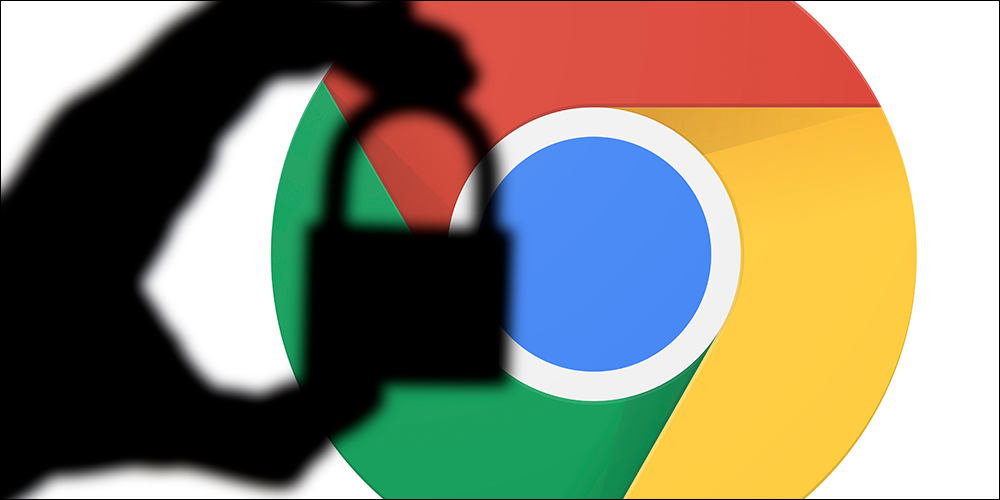
This week's review of ad fraud and quality in the digital advertising space.
How many apps on the Google Play Store support programmatic advertising?
Pixalate's 2019 Mobile Advertising Supply Chain Safety Report reveals that, as of the end of Q3 2019, over 500k of the 3.2 million Google Play Store apps support programmatic advertising.
Pixalate's 2019 Mobile Advertising Supply Chain Safety Report reveals where the most popular delisted apps from Q1-Q3 2019 were registered.
According to Pixalate's research, 11 of the 22 apps delisted from the Google Play Store that had over 100 million downloads prior to delisting were registered in China (including Hong Kong).

The Wall Street Journal has reported that Google Chrome will "phase out third-party cookies in [an] effort to boost privacy." Third-party cookie support will come to an end in 2022, per the WSJ.
"As Google takes the step, publishers and advertisers argue the changes will make the tech giant’s own ad business even stronger," wrote the WSJ.

"Grindr is sharing detailed personal data with thousands of advertising partners, allowing them to receive information about users’ location, age, gender and sexual orientation, a Norwegian consumer group said," reported Bloomberg.

According to eMarketer's 2020 Connected TV trends, challenges to watch out for this year include fragmented inventory, ad fraud, and frequency capping. "Connected TV ad spending is increasing significantly, but it still faces issues when it comes to the fragmentation of inventory, lack of standardized measurements, frequency capping and ad fraud," wrote eMarketer.
*By entering your email address and clicking Subscribe, you are agreeing to our Terms of Use and Privacy Policy.
These Stories on Weekly Recaps
*By entering your email address and clicking Subscribe, you are agreeing to our Terms of Use and Privacy Policy.

Disclaimer: The content of this page reflects Pixalate’s opinions with respect to the factors that Pixalate believes can be useful to the digital media industry. Any proprietary data shared is grounded in Pixalate’s proprietary technology and analytics, which Pixalate is continuously evaluating and updating. Any references to outside sources should not be construed as endorsements. Pixalate’s opinions are just that - opinion, not facts or guarantees.
Per the MRC, “'Fraud' is not intended to represent fraud as defined in various laws, statutes and ordinances or as conventionally used in U.S. Court or other legal proceedings, but rather a custom definition strictly for advertising measurement purposes. Also per the MRC, “‘Invalid Traffic’ is defined generally as traffic that does not meet certain ad serving quality or completeness criteria, or otherwise does not represent legitimate ad traffic that should be included in measurement counts. Among the reasons why ad traffic may be deemed invalid is it is a result of non-human traffic (spiders, bots, etc.), or activity designed to produce fraudulent traffic.”

